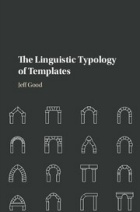Faculty Publications
The DSSN serves as a network and platform to promote attention to Digital Scholarship projects ongoing at the University at Buffalo and to help researchers coordinate with other faculty with similar interests in a research field. These projects include books published in a variety of areas concerning Digital Scholarship. If you have published such a book and would like us to include it here, please contact dssn@buffalo.edu. Similarly, contact us if you would like to present through DSSN on your work or would like DSSN assistance in hosting a discussion group, an informal presentation session, or workshops involving particular DS (DH) research concepts, social/equity issues, or tools.
Reid, Alex. Rhetorics of the Digital Nonhumanities. Southern Illinois University Press, 2022.
In Rhetorics of the Digital Nonhumanities, author Alex Reid fashions a potent vocabulary from new materialist theory, media theory, postmodern theory, and digital rhetoric to rethink the connections between humans and digital media. Addressed are the familiar concerns that scholars have with digital culture: how technologies affect attention spans, how digital media are used to compose, and how digital rhetoric is taught.
Castillo, David R. Un-deceptions: Cervantine strategies for the disinformation age. Linguatext, 2021.
SUNY at Buffalo professor David R. Castillo examines the nature of truth in the works of Cervantes and modern popular culture from a hard-left perspective in six essays with a foreword by William Egginton. Two new essays and four previously published and updated for inclusion in this book are organized into two parts, "Truth in Cervantine Fiction" and "Cervantine Readings of Popular Culture." Castillo weighs in on today's political climate and social conversations through the lens of his knowledge of Spanish Golden Age literature and culture.
Moore, Kristen, co-authored with Rebecca Walton & Natasha Jones.Technical Communication After the Social Justice Turn: Building Coalitions for Action. Routledge, 2019. Winner of the 2021 CCCC Technical and Scientific Communication Award for Best Book in the category of Technical and Scientific Communication.
This is the first scholarly monograph marking the social justice turn in technical and professional communication (TPC). Social justice often draws attention to structural oppression, but to enact social justice as technical communicators we must be able to trace daily practice to the oppressive structures it professionalizes, codifies, and normalizes. This book moves readers from conceptual explorations of oppression and justice to a theoretical framework that allows for the concepts to be applied and implemented in a variety of practical contexts. It also historicizes the recent social justice turn in TPC scholarship, models a social justice approach to building theories and heuristics, and presents scenarios that illustrate how to develop sustainable practices of activism and social justice.
Good, Jeff. The linguistic typology of templates. Cambridge University Press, 2016.
Linguistic templates have long been of interest to linguists. They have yet to be comprehensively studied at the word and sentential level. This book provides the first general reference and develops cutting-edge computational methods to examine their cross-linguistic variation. It will be of interest to theoretical, descriptive, and typologically oriented linguists.
Elia Vargas. How to praxis after the end of the world with more than so-called humans? Journal of Environmental Media, 2024.
This article is a meditation on the relations between praxis, art and posthumanism. Particularly, it is an attempt at a kind of practice of meaning-making that entangles multiple theoretical fields with my own critical creative practice. The article utilizes the feminist methodology of diffraction to read multiple frameworks through each other without privileging one over the other. It explores a speculative potential in relation to meaning-making and utilizes three specific examples of my artworks that examine what it means to practise concepts that perform change. These artworks – and the theoretical orientations I argue for – take a posthumanist view of media, crude oil, water and sheep. I call this work ‘Heliotechnics/Heliotechniques’: solar practices. These include my recent work Carbon Loops (2022), a dual 16-mm projection installation of crude oil film loops that were soaked in crude oil for one month; and a revisiting of the experimental videos Signal Works (2017) and grass wool signal scan (2016). I build a kind of relation to posthumanist practices through the feminist philosopher River (Karen) Barad. While I emphasize the artworks, it is the kinds of non-representational practices and concepts that I explore in this meditation. My goal is to think through words and doings to enact concepts that perform change.




